UC San Diego Spreads Compassion Nationwide with New Training Program
Medical students from across the country came to San Diego to learn how to be more empathetic doctors; now they’ll bring that knowledge home
Published Date
Article Content
In a new effort to cultivate empathy and compassion in health care systems and medical schools across the country, the Sanford Institute for Empathy and Compassion at the University of California San Diego has launched the inaugural Compassion Ambassador Program (CAmP). This innovative program brings together first-year medical students from partner institutions across the country to develop and implement projects that promote empathy and compassion in medicine.
CAmP is modeled after the Sanford Institute's successful Sanford Scholar Award Program, which includes the same training and project opportunities, but is exclusively for students at UC San Diego School of Medicine. By providing these opportunities to students from partner institutions, CAmP’s long-term goal is to create a ripple effect of compassion that spreads across the nation.
“Empathy and compassion are critical skills for medical professionals, but they aren’t usually emphasized in a typical medical education,” said Jenna Tutjer, director of medical education integration at the Sanford Institute. “We want our students to go back to their home institutions and help spread interest in empathy and compassion so we can make the widest possible impact.”
“Empathy and compassion are critical skills for medical professionals, but they aren’t usually emphasized in a typical medical education. We want our students to go back to their home institutions and help spread interest in empathy and compassion so we can make the widest possible impact."
- Jenna Tutjer
Before commencing their projects, the students attended a three-day “Summer CAmP” training program at UC San Diego in August, where faculty from the Sanford Institute led a variety of workshops designed to further develop the skills they’ll need to complete their projects and to eventually provide more compassionate patient care. These workshops varied from traditional didactic workshops to interactive theater games.
“Medical school is so book-focused,” said compassion ambassador Madeline Vagts, a second-year medical student at the University of South Dakota. “We need that knowledge to be good doctors, but we also need those person-to-person skills, so it was great to take a step back from the books for a few days to focus on that side of medicine.”
In addition to completing their trainings during the day, the CAmP cohort took an evening visit to the Timken Museum of Art in Balboa Park, where they learned about how institutions are able to promote empathy through accessibility initiatives, such as creating tactile versions of artworks for the sight-impaired community.
“Getting up close and personal with art is a really powerful experience in terms of cultivating compassion,” said compassion ambassador Neelufar Raja, a second-year medical student at Case Western Reserve University. “When you look at art through a lens of empathy, you’re practicing putting yourself in somebody else’s shoes and seeing what a moment in their life is like, which is what doctors need to do to provide good patient care.”
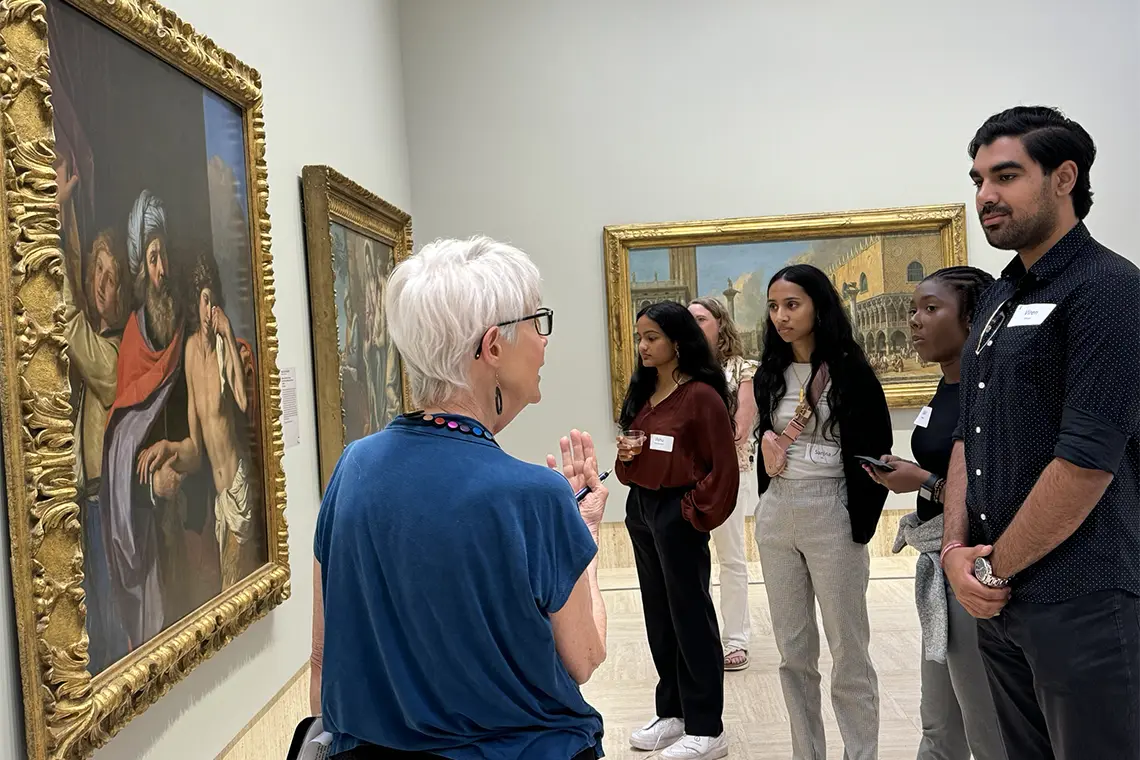
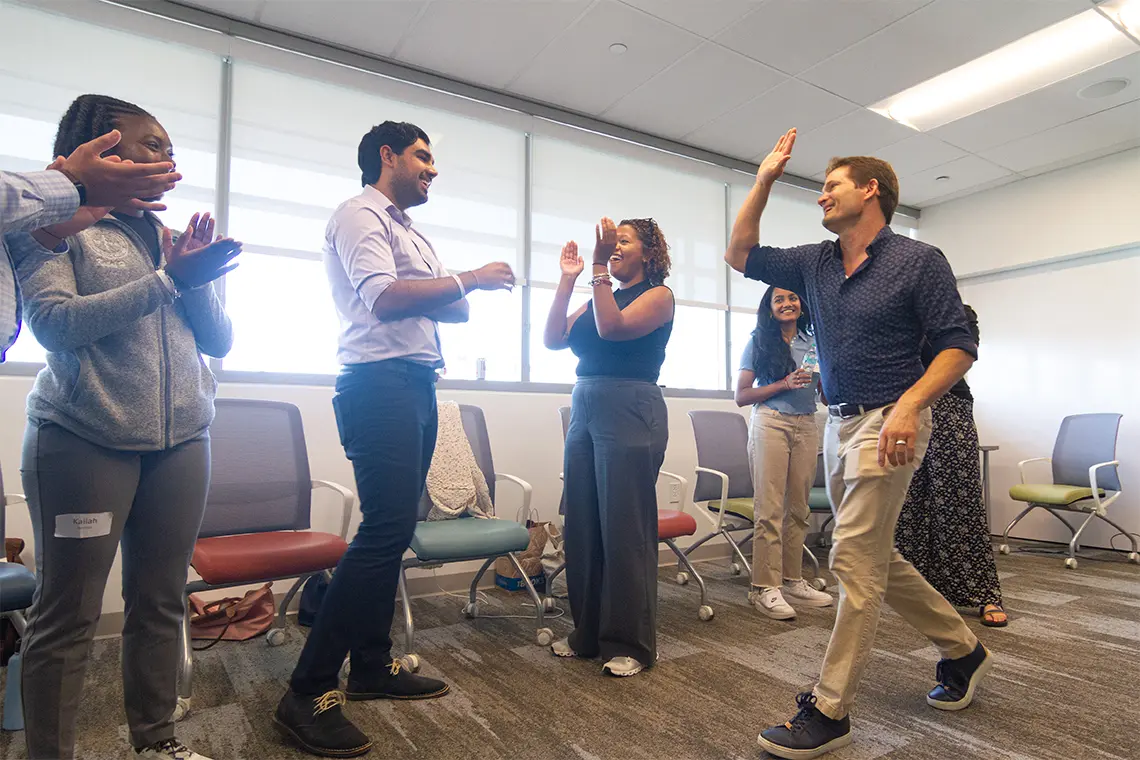
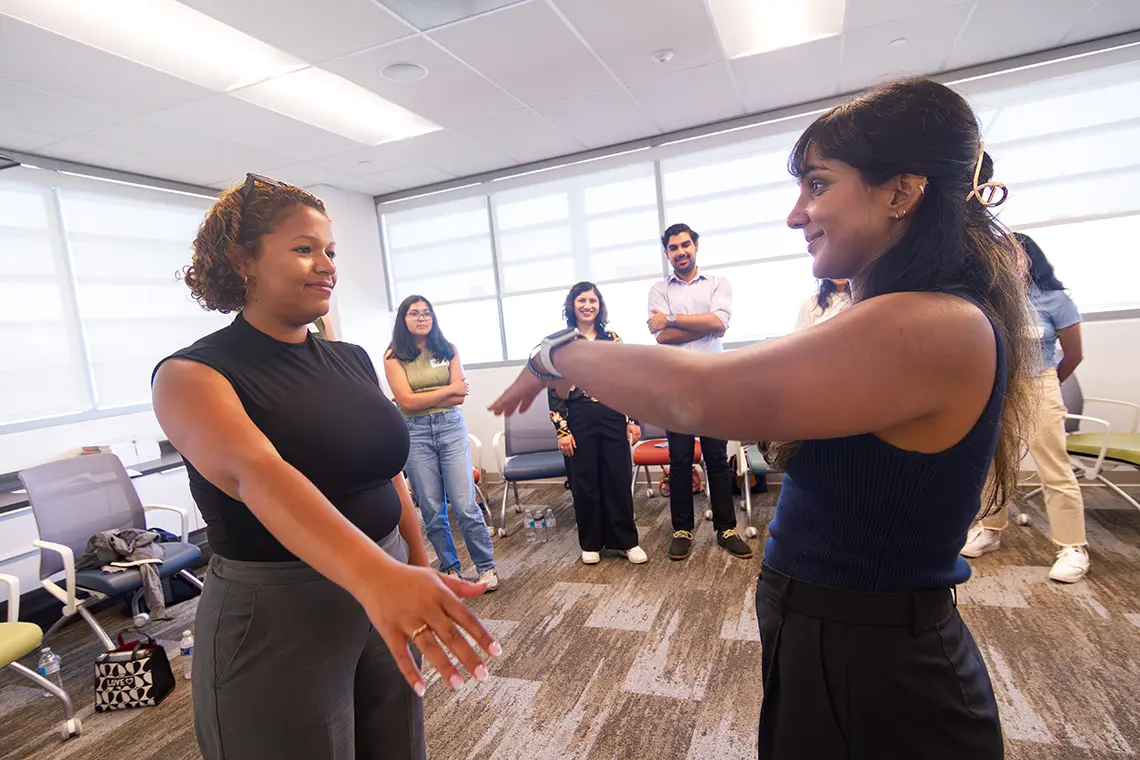
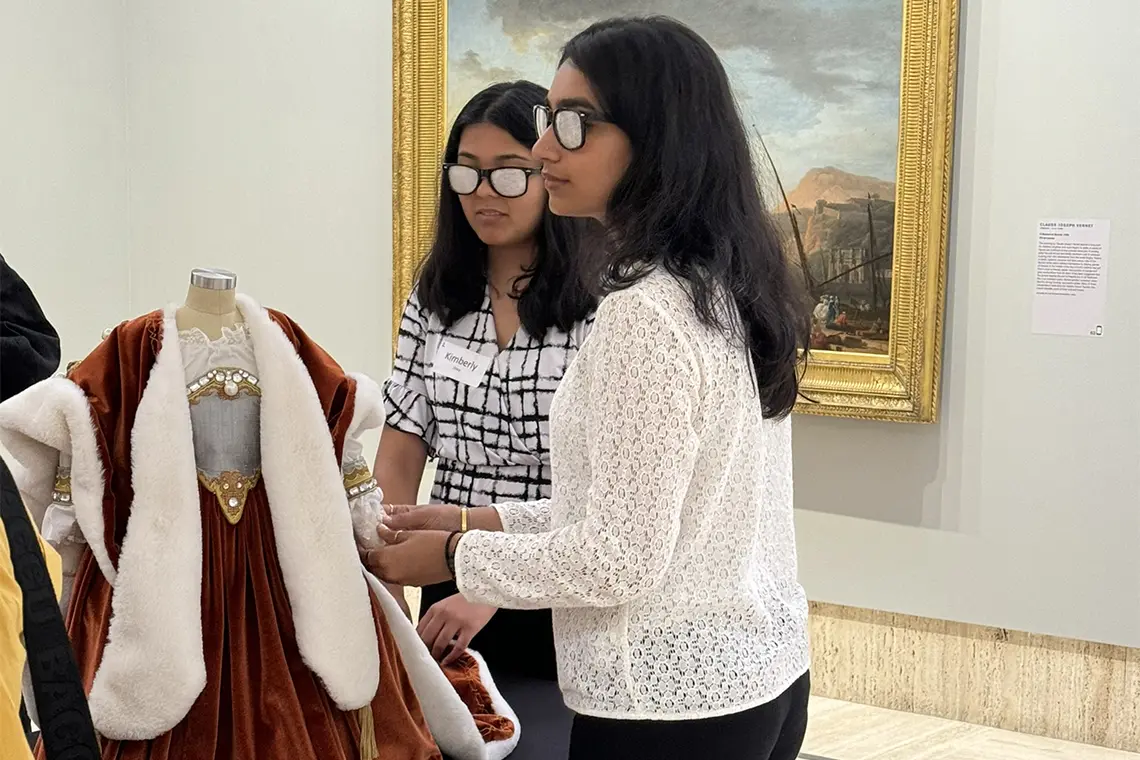
Compassion in action
While the students completed compassion training on campus at UC San Diego, the cornerstones of the program are the student projects, which will be completed over the next year at the students’ home institutions. For Vagts, whose project aims to improve patient hygiene in hospitals, the project is an opportunity to make a tangible difference in patient care and cultivate a culture of compassion among doctors.
In close partnership with a physician, Vagts is working to implement small changes that could make a big impact on patients’ comfort and health, such as helping nurses have access to better shampoo and connecting them with local cosmetologists for patient haircuts. She will also explore new ways to educate doctors and other health care providers on the importance of patient hygiene to empower them to take their own small steps to support this often overlooked aspect of patient care.
“There are a million ways to be a compassionate doctor, and I hope that I can help physicians understand that there are just as many ways to start a conversation about hygiene with a patient,” she said. “It could be as simple as asking, ‘Have you gotten a shower today?”’, but asking those small questions can really make a big difference in the well-being of that patient.”
Raja will be looking at compassion in medical care through a different lens: graphic novels. Medical graphic novels are a rapidly growing subgenre of literature that uses a combination of words and images to tell medicine-related stories. According to Raja, these graphic novels provide a unique opportunity to tell a patient’s story from their perspective.
“Most of these are first-person narratives that were actually written by somebody who has gone through that experience,” she said. “My project is asking whether reading these narratives as medical students can make a tangible impact in how we experience empathy for patients.”
Raja will ask a group of students to read three medical graphic novels, all first-person narratives from stigmatized patient populations, and then give the students a survey designed to test for empathy. Comparing these results to those of a control group, she hopes to learn how graphic novels can be a useful tool for helping doctors see things from their patient’s perspective.
“You only get a few minutes with a patient in the clinic, but reading stories like this can let you see the bigger picture of a patient’s experience, which makes a huge difference.”
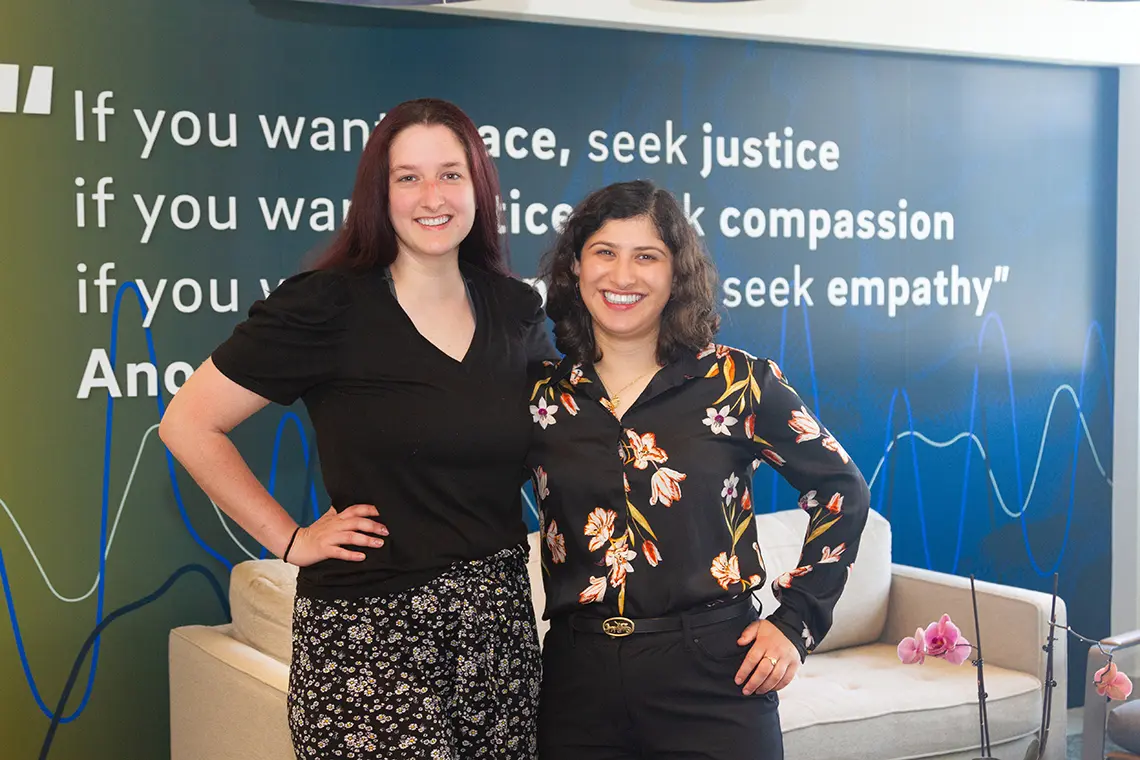
Taking compassion nationwide
In addition to the University of South Dakota and Case Western Reserve, the CAmP program currently partners with City University of New York and the University of Texas at San Antonio. However, this list is expected to expand in the future, particularly as interest in empathy and compassion in medical education continues to grow.
“These partnerships all came about through word-of-mouth and people were very eager to participate in the program,” said Tutjer. “We know the excitement and the energy is there. Now it’s about spreading the word and helping more institutions feel like they are able to integrate empathy and compassion into their medical school curricula.”
With the support of the Sanford Institute and their faculty mentors, the 2024-2025 cohort of compassion ambassadors are ready to spread compassion nationwide, one act of kindness at a time. For a full list of CAmP awardees and descriptions of their projects, visit the Sanford Institute’s website.
Share This:
Stay in the Know
Keep up with all the latest from UC San Diego. Subscribe to the newsletter today.



